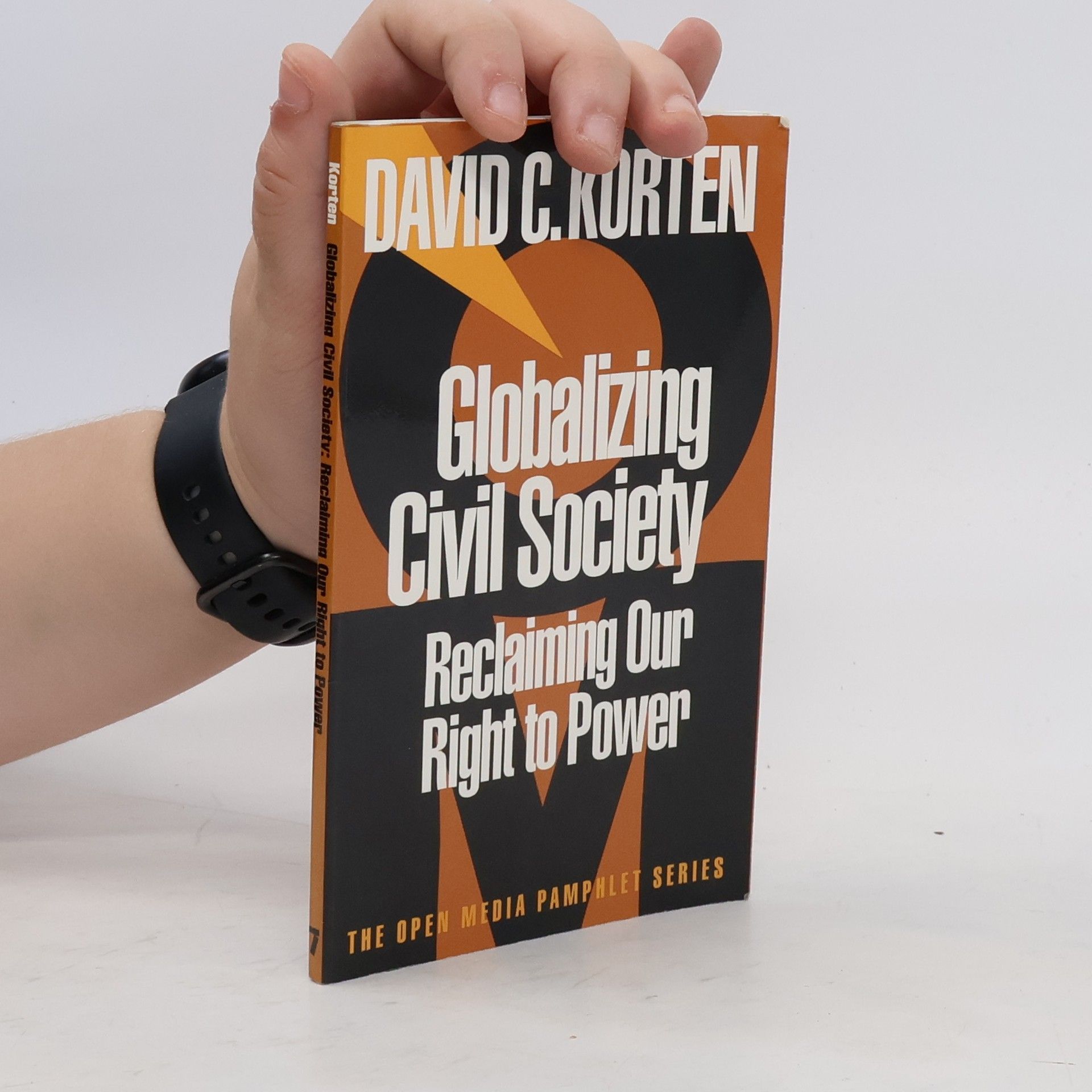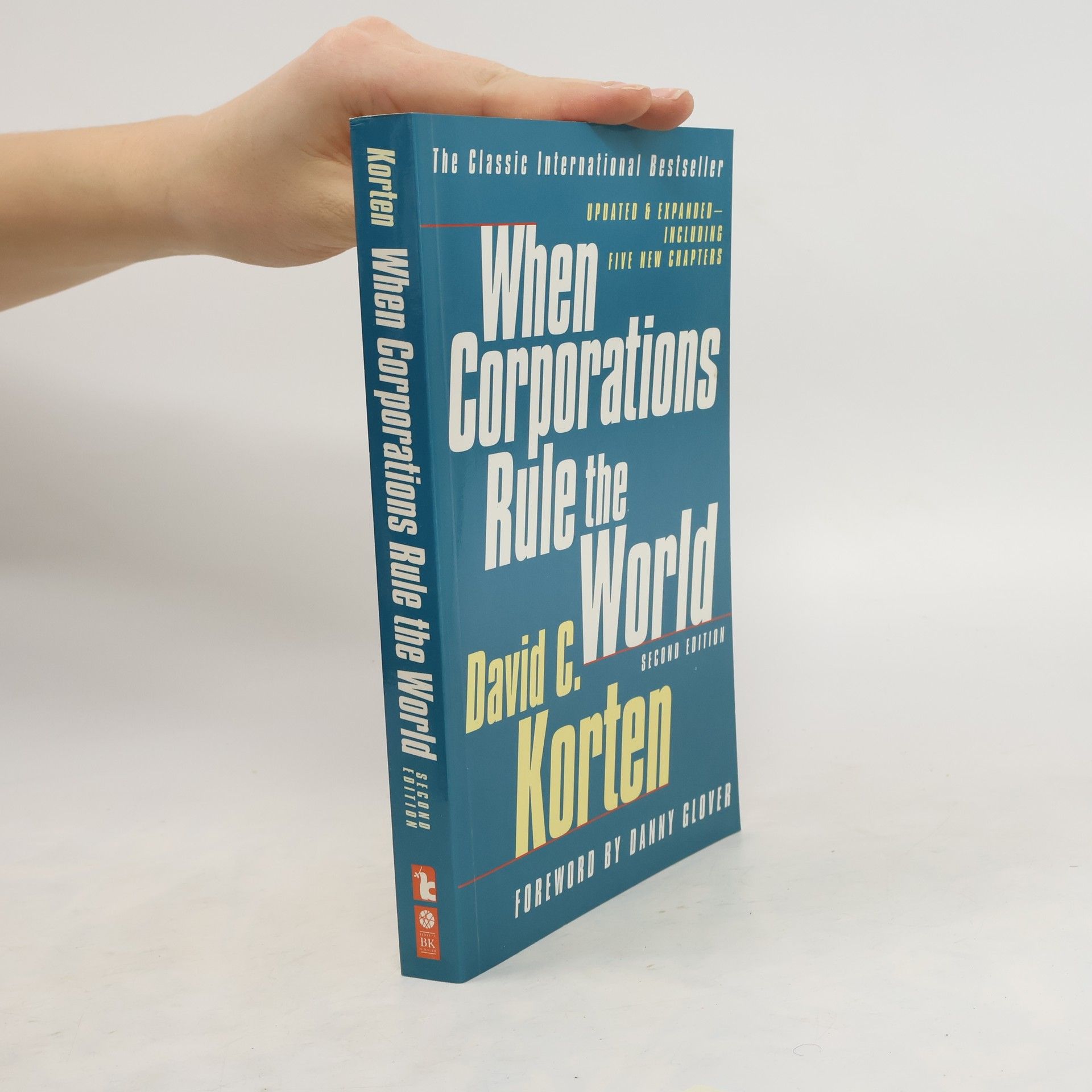David C. Korten Bücher
David C. Korten ist ein Autor, der sich nach jahrzehntelanger Tätigkeit in führenden Institutionen vom Establishment ab- und dem Aktivismus zugewandt hat. Seine Werke, die weltweit als Pflichtlektüre an Universitäten gelten, setzen sich kritisch mit Wirtschaftsmodellen auseinander, die Armut und Umweltzerstörung verschärfen. Korten konzentriert sich darauf, wie die Vorherrschaft von Unternehmen durch eine gerechtere und nachhaltigere Gesellschaft ersetzt werden kann. Seine Schriften untersuchen die Grundursachen systemischer Misserfolge und suchen nach Wegen für eine positive menschliche Zukunft, indem er die Zivilgesellschaft und lokale Ökonomien stärkt.






In this work, outspoken business leader Anita Roddick brings together the voices of some of the most prominent authorities on the phenomenon of Globalization, including Susan George, David Korten and Naomi Klein. Full of images, this book gets right to the heart of the issue, exploding the myths that would have us believe Globalization is a force for good. Covering aspects of the subject as diverse as human rights, the environment, international finance, health, the food we eat and trade, the book combines medium-length articles with quotes, case notes and interviews. This book constitutes a call to action, showing how each and every one of us can take on the corporate.
When Corporations Rule the World
- 385 Seiten
- 14 Lesestunden
When Corporations Rule the World has become a modern classic. Korten's warnings about the growing global power of multinational corporations seem prophetic today. This new edition has been revised throughout to make it more accessible to the general reader, and features a new introduction, a new epilogue, and three new chapters. While Korten points out that the multinationals are, if anything, more powerful now than they were when he first wrote the book, he also offers reason for hope: the growth of the international Living Democracy movement opposing corporate rule. The new material in the book: Documents the consolidation since 1995 of financial and corporate power at the expense of democracy, people, communities, and the planet Looks in depth at the nature and cultural underpinnings of the burgeoning Living Democracy movement to resist corporate power Offers a vision of a what a civil society grounded in life-centered values rather than immediate financial gain might look like.
Globalizing Civil Society: Reclaiming Our Right to Power
- 80 Seiten
- 3 Lesestunden
Focusing on the pressing global issues highlighted by the 1998 UN Conference on Human Settlements, the book critiques governments for neglecting critical problems like hunger, housing shortages, and environmental degradation. It delves into the root causes of these crises and presents innovative solutions centered on sustainability, community, and equity, advocating for principles essential to securing a healthier future for humanity.
In this book, David Korten makes a compelling and well-documented case that capitalism's claims to being the engine of wealth creation, the champion of democracy, and the embodiment of the market economy are unfounded. Among Korten's conclusions: Capitalism is a pathology that afflicts democracies and market economies in the absence of vigilant public oversight. The consolidation of economic power under a handful of global mega-corporations is a victory for central planning - not the market economy. The alternative to the new global capitalism is a planetary system of democratically governed market economies that honor basic market principles of the sort actually advocated by Adam Smith.